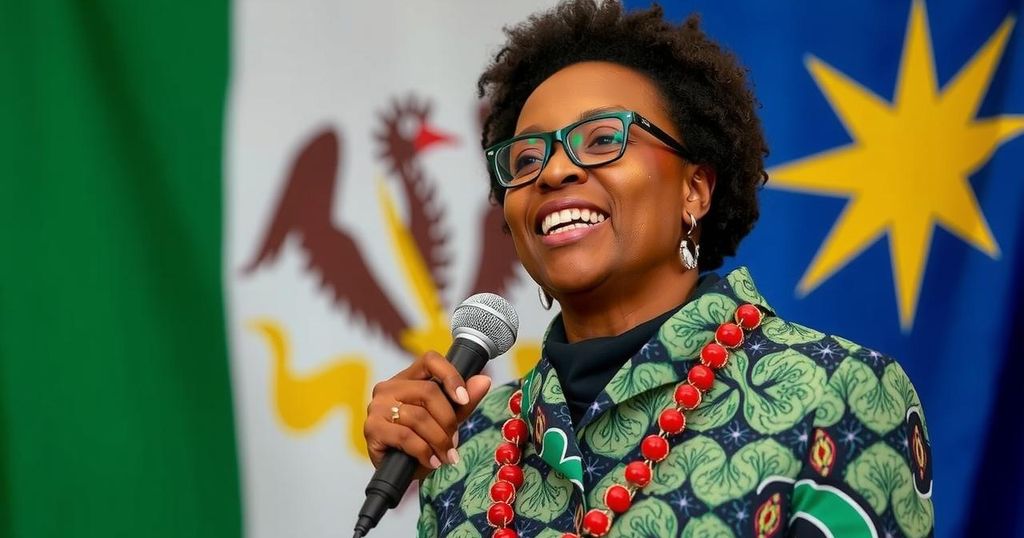Namibia Elects Its First Female Leader as SWAPO Party Wins Elections

Vice President Netumbo Nandi-Ndaitwah has been elected as Namibia’s first female leader, winning 57% of the vote in the recent presidential election held by the ruling SWAPO party. Despite her victory, opposition parties have rejected the election results due to technical issues and plan to challenge them in court. SWAPO retained its parliamentary majority, highlighting a stable political climate in Namibia despite regional trends in southern Africa.
Namibia has made history by electing its first female leader, Vice President Netumbo Nandi-Ndaitwah, following a decisive victory in the recent presidential election held by the long-standing SWAPO party. At 72 years of age, Nandi-Ndaitwah secured 57% of the votes, thereby surpassing early predictions that suggested a potential runoff. The SWAPO party has maintained its dominance since Namibia’s independence from apartheid South Africa in 1990, celebrating 34 years of governance.
However, the election process was marred by technical difficulties, including ballot shortages, which led to an extension of the voting period. Opposition parties have vehemently rejected the official results, claiming that the extension was unconstitutional and asserting that numerous potential voters were disenfranchised. As a result, they intend to challenge the outcome in court. Furthermore, SWAPO successfully retained its majority in the parliamentary elections, resisting the trend of declining power seen in neighboring countries, such as South Africa and Botswana.
Netumbo Nandi-Ndaitwah, who has a long history of political involvement, began her career in the underground independence movement of the 1970s and was appointed vice president earlier this year upon the passing of President Hage Geingob. She will become Namibia’s fifth president since independence, a role that comes with immense responsibility following the challenges faced during the election process.
Following the announcement of her victory, the SWAPO party celebrated on social media, stating, “SWAPO Wins. Netumbo Wins. Namibia Wins. Now Hard Work.” The Independent Patriots for Change party, led by Panduleni Itula, received 25% of the votes and has called for a legal challenge, citing irregularities during the electoral process. Namibia, a nation characterized by its vast land and sparse population, is regarded as one of the more stable democracies on the African continent.
The November 2023 presidential election in Namibia marked a significant turning point in the country’s political landscape, as Vice President Netumbo Nandi-Ndaitwah became the first female leader of Namibia. SWAPO, the ruling party since independence, faced criticism regarding the electoral process, reflecting broader trends in southern Africa where long-ruling parties have experienced shifts in power. The implications of this election extend beyond mere representation, as they highlight the ongoing challenges in ensuring democratic integrity amidst technical and logistical issues.
In conclusion, Namibia’s election of Vice President Netumbo Nandi-Ndaitwah as its first female leader symbolizes a historic achievement amidst challenges related to the electoral process. The opposition’s rejection of the results underscores the need for transparency and accountability in future elections. As Namibia continues to navigate its political landscape, it remains to be seen how these developments will influence governance and societal progress.
Original Source: abcnews.go.com







